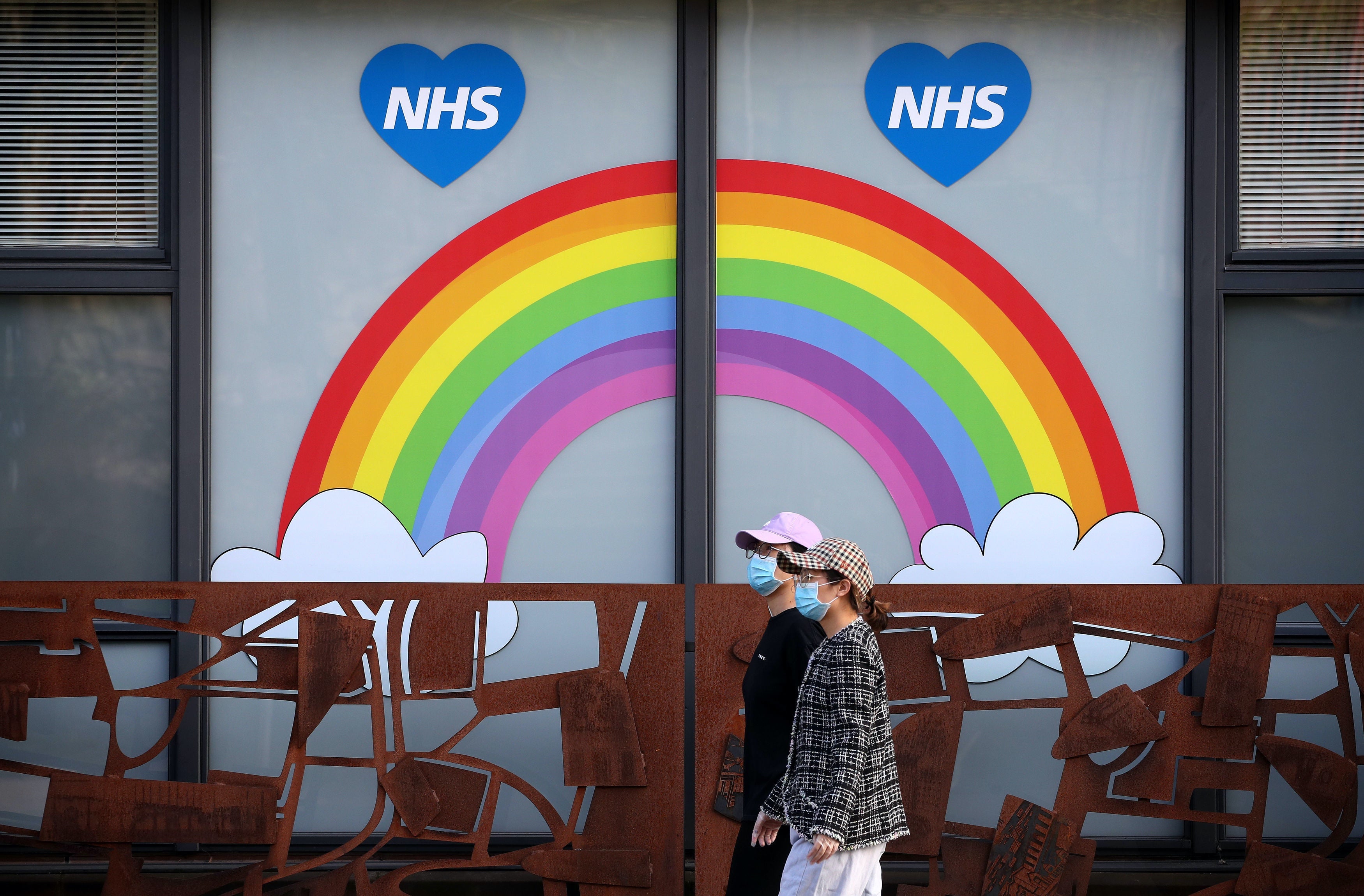Reasons for hope in 2021: The positive effects of the pandemic
From flexible working to cuts in carbon emissions, Adam Forrest says big changes are already under way


Your support helps us to tell the story
From reproductive rights to climate change to Big Tech, The Independent is on the ground when the story is developing. Whether it's investigating the financials of Elon Musk's pro-Trump PAC or producing our latest documentary, 'The A Word', which shines a light on the American women fighting for reproductive rights, we know how important it is to parse out the facts from the messaging.
At such a critical moment in US history, we need reporters on the ground. Your donation allows us to keep sending journalists to speak to both sides of the story.
The Independent is trusted by Americans across the entire political spectrum. And unlike many other quality news outlets, we choose not to lock Americans out of our reporting and analysis with paywalls. We believe quality journalism should be available to everyone, paid for by those who can afford it.
Your support makes all the difference.It was a bad year. Terrible, in many ways. Quite apart from all the suffering and dread, the coronavirus pandemic has brought an unprecedented degree of tedium to our lives.
Remember all those hopes, dreams and secret schemes you had in January? Instead we’ve spent an inordinate amount of time squidging out hand sanitizer, squinting fearfully at others in the supermarket, and switching on the radio in the morning to hear Matt Hancock go on about testing. Again.
And yet, somehow, it’s not all been bad. Under the blitz of worrying headlines a whole series of positive shifts are under way. Like all periods of immense turmoil, exciting new possibilities have emerged – possibilities which could make 2021 not only a year of recovery, but a year in which we start to find better ways to live.
The change in work culture amounts to a quiet revolution. Until the outbreak, most bosses looked at working from home as a chance to skive. But national economies have survived because of the rapid and relatively smooth adjustment to remote working.
“The old 9 to 5 in an office environment is dead,” says Cary Cooper, professor of organisational psychology and health at Manchester University. “Before the pandemic employees had said they wanted more flexible working. After the pandemic, companies finally want it to work because they’re looking at massive downsizing of their offices to save money.”
Professor Cooper says bad recessions usually always lead to “presenteeism” – the desperate need to be seen working longer hours, even working when ill. “In the short-term there’s a danger we get some of that presenteeism digitally – people arranging unnecessary Zoom meetings and so on,” he says. “But when that settles down, you’re left with a very, very different work culture.
“Most companies understand now that you can set targets and let most people get on with the job much more flexibly. Many young people may still want to be in an office – they’re keen to learn, they need mentorship. I think the future managers will be promoted on the basis of their emotional intelligence to manage this stuff with care.”
The hollowing out of our city centres will have its obvious losers, of course – from landed property owners to sandwich shop chains. But urban planners and environmentalists have been dreaming for decades about more efficient and sustainable ways of commuting.
Many of us are doing more walking and cycling. Many of us have got to know our own neighbourhoods and green spaces better. Many of us enjoyed cleaner air and noticed the return of bird song – the dawn chorus of the mistle thrush, the robin and the wren – that had been blotted out by the din of traffic.
Will the roar of traffic return in 2021 and beyond? Analysis by Global Carbon Brief (GCP) shows global CO2 emissions have fallen by 7 per cent this year because of lockdowns. While a hefty rebound is expected in the next couple of years, some experts hope the carbon emissions levels seen during the pandemic can be more than a blip.
Glen Peters, research director at the Centre for International Climate Research (CICERO), says it’s still too early to tell how much lasting, useful change this year could help bring about it to address the climate emergency – but points out that there are reasons to be hopeful.
“Most of the emission reductions were in transportation, and this is the sector where some changes might linger,” he says. “Maybe the growth of aviation will not return to pre-Covid levels, as business realises the travel can be avoided. Maybe some will realise that biking was a better alternative than thought.”
Dr Peters hopes governments will use the recovery to “push” green policies and support packages favouring renewable technologies. “A positive sign is that fossil industries have been hit harder than renewable industries … perhaps this may give policy makers the confidence to shift funds in a greener direction,” he says.
In case you missed one of the most encouraging developments of the year, in September China pledged to reach carbon neutrality by 2060. Chinese president Xi Jinping called for a “green recovery” from the pandemic, and there is hope the next US president Joe Biden will set the same agenda.
When it comes to the virus itself, the vaccine’s arrival means the picture is clearer and brighter than at any time since March. Although the NHS faces a huge task in rolling out the jab – and an enormous backlog of patients waiting for other treatments – health experts in the UK think the service has learned vital lessons this year.
“What we’ve seen this year is the NHS, wider public sector and voluntary bodies working together better than they did previously,” says Helen Buckingham, director of strategy at the Nuffield Trust. “They’ve dropped some of the old barriers and hierarchies, and built really effective relationships that should stand them in good stead for the future.”
Ms Buckingham says the health service has adapted to remote working and remote consultations remarkably well. “We know it can work now. It means the people who come into physical healthcare settings are people who really need to be there. There were plans to do it anyway and it’s been accelerated by Covid.”
While the rest of the world can raise a glass at the end of 2020 and breathe a sigh of relief, Britain has Brexit to worry about. Looming border chaos casts a dark shadow over the country. But there is a wider hope that the populist politics which helped make it happen is already on the way out.
Support for right-wing populist parties has fallen across much of Europe in recent months, at least in part because they’ve tried to downplay the health risks. The pandemic has offered a visceral reminder that experts – including the ones who keep us alive – are not the enemies of the people.
However difficult this year has been, how difficult the months ahead may be, the recovery is the ideal chance to reshape society. We may never get a better chance.


Join our commenting forum
Join thought-provoking conversations, follow other Independent readers and see their replies
Comments